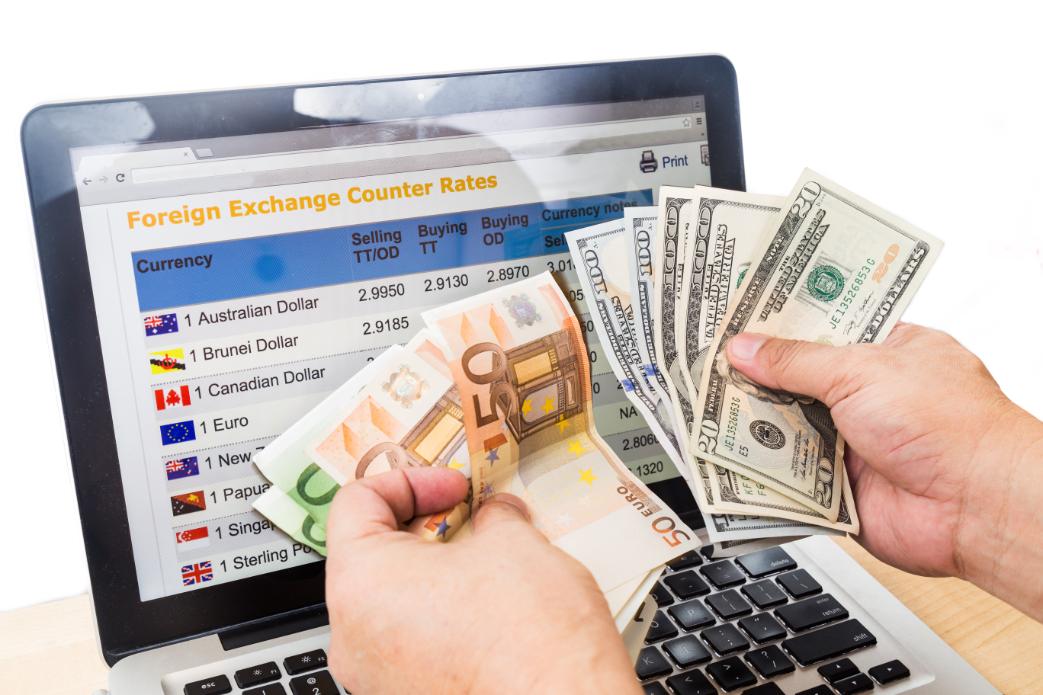Exchange rates play a significant role in the global economy, impacting businesses of all sizes that operate internationally. If you’re an entrepreneur with a global presence, or a small business looking to expand abroad, understanding how exchange rates affect your growth is essential. Whether it’s the cost of imports, the pricing of exports, or the volatility in international markets, exchange rate fluctuations can have both positive and negative effects on your business. In this blog post, we’ll dive into how exchange rates impact various aspects of your business growth and what you can do to navigate these changes.
What Are Exchange Rates and Why Do They Matter?
An exchange rate is simply the value of one currency in relation to another. For example, the exchange rate between the U.S. dollar (USD) and the Euro (EUR) determines how much one USD is worth in terms of EUR. Exchange rates are influenced by numerous factors, including inflation rates, political stability, interest rates, and supply and demand.
For businesses involved in international trade or investment, fluctuations in exchange rates can directly affect the cost of doing business. An appreciation or depreciation in currency can lead to changes in the pricing of goods, the competitiveness of products, and even the overall profitability of a business.
- Impact on Import Costs and Profit Margins
If your business relies on importing goods or raw materials from foreign countries, fluctuations in the exchange rate can significantly affect your bottom line. When your local currency weakens against foreign currencies, the cost of importing goods becomes more expensive, which directly impacts your profit margins.
Example:
- Let’s say your business imports high-end electronics from Japan and your local currency depreciates against the Japanese yen. You’ll now have to pay more for the same goods, which means your costs will increase. This can either reduce your profit margins or force you to raise prices, potentially lowering customer demand.
On the other hand, a stronger local currency can help reduce the costs of importing goods, potentially increasing your margins and giving you more room to improve pricing flexibility.
- Impact on Export Pricing and Competitiveness
For businesses that export products internationally, exchange rates are equally important. A favorable exchange rate can make your products more attractive to foreign buyers by lowering the price they pay in their local currency. On the other hand, an unfavorable exchange rate may lead to a decline in demand for your exports.
Example:
- Imagine your business exports clothing from the UK to the United States. If the British pound weakens against the U.S. dollar, your products will become cheaper for American consumers. This price reduction may boost demand for your goods and potentially increase your revenue in the U.S. market.
However, if the pound strengthens against the dollar, your goods may become more expensive for U.S. consumers, which could negatively impact sales and your market share in the U.S.
- Influence on Profitability from Foreign Investments
For businesses with foreign investments, exchange rate fluctuations can directly impact profitability. If you hold assets or equity in foreign countries, the value of your investments may increase or decrease depending on the exchange rate. This can have a significant impact on your overall portfolio performance.
Example:
- A company based in the U.S. that has invested in European assets will see its investment’s value fluctuate depending on the USD/EUR exchange rate. If the dollar strengthens against the euro, the value of the investment, when converted back to USD, will decrease. Conversely, if the dollar weakens, the value of the investment will increase.
In this case, understanding and monitoring exchange rates can help you anticipate potential changes in your investment’s value, allowing you to make timely decisions to protect your portfolio.
- Cash Flow and International Transactions
Cash flow is crucial for any business, and exchange rate fluctuations can affect the timing and amount of money you receive or send in international transactions. If your business regularly deals with foreign clients or suppliers, it’s essential to account for currency volatility when planning for cash flow.
Example:
- If you have clients in Japan and invoice them in yen, but your local currency weakens against the yen, you may receive less money when the payment is converted back into your local currency. This can affect your liquidity and make it harder to manage expenses, particularly if you have to make payments to foreign suppliers or service providers.
To reduce the impact of these fluctuations, many businesses use hedging strategies to lock in exchange rates for future transactions, ensuring that they can predict their cash flow more accurately.
- Currency Hedging: A Tool to Mitigate Exchange Rate Risks
To protect your business from the unpredictable nature of exchange rates, many companies use currency hedging. Hedging involves using financial instruments or contracts to reduce the risk of adverse exchange rate movements. This is particularly useful for businesses that rely heavily on international transactions.
Common Hedging Strategies Include:
- Forward Contracts: These allow you to lock in an exchange rate for a future transaction, providing certainty about the cost of imports or the value of exports.
- Currency Options: Currency options give you the right (but not the obligation) to exchange currency at a predetermined rate. These are more flexible than forward contracts but typically come with a premium.
- Currency Swaps: Involves exchanging cash flows in different currencies, which can help stabilize future payments and receipts.
By using these strategies, businesses can manage the risks associated with currency fluctuations, ensuring more predictable financial outcomes.
- The Effect of Exchange Rate Volatility on Long-Term Growth
While exchange rate fluctuations can offer short-term advantages, volatility can create uncertainty for businesses in the long run. Prolonged periods of currency instability can lead to higher risks, affecting planning, forecasting, and strategic decision-making. In such cases, businesses may struggle to maintain consistent pricing strategies, profit margins, and competitive positioning.
To ensure long-term growth, companies must have a strategy in place to manage currency risk and protect against significant fluctuations that could disrupt operations.
Strategies for Long-Term Growth:
- Diversification: Expand your business into multiple foreign markets with different currencies to spread the risk and reduce dependency on any one currency.
- Flexible Pricing Models: Develop pricing models that allow you to adjust to currency fluctuations, especially for businesses heavily involved in imports and exports.
- Local Currency Borrowing: If possible, borrow in foreign currencies to match your foreign income and mitigate the effects of exchange rate movements on your debt obligations.
- Understanding the Broader Economic Impact of Exchange Rates
Exchange rates don’t just affect individual businesses; they also impact the broader economy. For example, currency depreciation can encourage exports but lead to higher inflation as the cost of imports rises. Similarly, an appreciating currency may hurt exporters but reduce inflationary pressures by making imports cheaper.
Understanding how exchange rates fit into the broader economic context will help you navigate changing conditions and position your business for success in both stable and volatile periods.
How to Manage Exchange Rate Risks for Your Business
Now that we understand how exchange rates affect your business growth, here are some tips for managing these risks:
- Monitor Exchange Rate Trends: Stay informed about the global economy and how it might impact your industry. Use financial tools to track exchange rates regularly.
- Consult Currency Experts: For complex or large-scale transactions, consider working with a currency expert to guide you through the intricacies of exchange rate movements and provide tailored advice.
- Implement Hedging Strategies: Use financial instruments like forward contracts and currency options to hedge against unfavorable fluctuations, providing you with more financial certainty.
- Maintain Flexible Operations: Adapt your pricing and supply chain strategies to account for exchange rate fluctuations, ensuring that your business remains competitive and profitable.
FAQs: How Exchange Rates Affect Your Business Growth
Q1: How can exchange rates impact small businesses?
Small businesses that import or export goods can face significant impacts from exchange rate fluctuations. A weaker local currency can increase the cost of imported goods, while a stronger currency can make exports less competitive. Managing these risks through hedging and strategic pricing can help protect small businesses from volatility.
Q2: Can exchange rates affect global investments?
Yes, exchange rate fluctuations can impact the value of investments in foreign markets. Currency changes can either increase or decrease the value of your assets when converted back to your local currency. Businesses with global investments should be mindful of currency risks and consider hedging strategies to mitigate losses.
Q3: How do I protect my business from exchange rate volatility?
Businesses can protect themselves from exchange rate volatility by using hedging instruments, monitoring global economic trends, diversifying revenue streams across different currencies, and maintaining flexible pricing strategies.
Conclusion
Exchange rates play a crucial role in the growth and profitability of businesses operating in international markets. Whether you are dealing with imports, exports, investments, or cross-border transactions, fluctuations in currency values can have a direct impact on your bottom line. By understanding how exchange rates affect your business and using strategies like hedging, diversification, and flexible pricing models, you can reduce the risks associated with currency fluctuations and ensure your business remains competitive in the global marketplace.














































